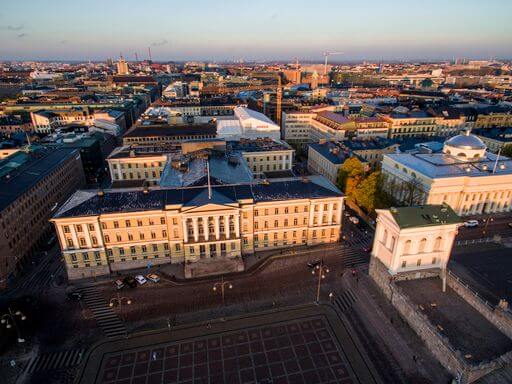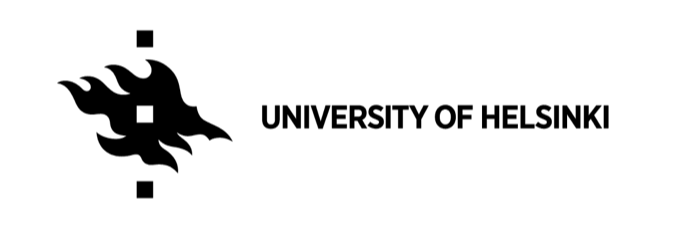To solve the world’s biggest challenges, research must embrace multidisciplinary collaboration. It is at the University of Helsinki in Finland that researchers, industry, community and government translate knowledge and discovery into advances in sustainability, global resilience, health, and economic and social empowerment
As a multidisciplinary university, the University of Helsinki aims to become an internationally recognised multidisciplinary hub of sustainability, science and teaching by 2030. They’re on track to achieve this lofty goal, buoyed by their in-depth and innovative discipline-specific knowledge, interdisciplinary research, and high standards of teaching.
There are many allures to studying at this university, chief among them, its rankings. The University of Helsinki is ranked within the top one percent of the world’s research universities. They’re also ranked among the top 50 universities in Europe and among the top 100 universities in the world, according to the Times Higher Education World University Rankings 2021.
As a member of the League of European Research Universities (LERU) — an association of 21 leading research-intensive universities in Europe — the university promotes responsibility and sustainability not only in research, but also in teaching by offering a wide range of programmes; its multidisciplinary approach enables students to tailor their degree based on their interests and strengths.
Studying at the University of Helsinki will prove to be an adventure. Its location in Helsinki — the capital of Finland — means students live within a hub of other interesting cities, and within close proximity to stunning trails, agricultural lands, the oceans and everything in between. Helsinki is also considered among the world’s most liveable cities.
Postgraduate degrees that help you solve 21st century challenges

The university is set on a compact, safe and modern compass in the capital of Finland, Helsinki. Pictured is the University of Helsinki’s Main Building, Situated in Downtown Helsinki. Source: University of Helsinki
Aspiring postgraduate students will be heartened to note that the university is home to a number of interdisciplinary postgraduate degrees.
The multidisciplinary Master’s Programme in Life Science Informatics, for instance, which is offered in collaboration with the Helsinki Institute of Life Sciences, is designed to help graduates successfully meet the technical and economic challenges at the interface between biotechnology, medicine, pharmacy, and informatics.
This programme has four study tracks, including: Bioinformatics and Systems Medicine; Biomathematics; Biostaisics; and Ecoevoutionary Informatics. Within these areas, topics addressed include biomedical data base systems, data mining, machine learning, computer-aided disease modelling, algorithmic bioinformatics and system biology.
The course is designed for students with a background in mathematics, computer science, and statistics. Students with these disciplines as a minor in their bachelor’s degree, with their major being in the fields of ecology, evolutionary biology, or genetics, may also apply.
Upon completion, students can expect to be equipped with first-class knowledge and capabilities for a career in life science research and in expert duties in the public and private sectors; have an understanding of the regulatory and ethical aspects of scientific research; and mastered scientific research, making systematic use of investigation or experimentation to discover new knowledge, among other skills.
Those who have a passion for understanding the field of forest sciences can opt for the Master’s Programme in Forest Sciences, which gives students a head start into forest management, governance, or research at an advanced level. Students can choose from two study tracks: forest ecology and management; and forest bioeconomy business and policy.
This programme explores the challenges facing our forests through climate change, land management, and resource strategies.

The university is set on a compact, safe and modern compass in the capital of Finland, Helsinki. Pictured is the University of Helsinki’s Main Building, Situated in Downtown Helsinki. Source: University of Helsinki
Future changemakers in education might want to apply for the university’s Master’s Programme in Changing Education, which will help you develop an understanding of education as a dynamic and transformable construct, from the individual neural level to global policies.
The programme is theory-driven, science-based and hands-on; students will gain the knowledge and skills to analyse, develop and influence the practices and structures of education systems, institutions, teaching and pedagogical issues.
Students can expect to explore a range of contemporary innovations while maintaining a clear focus on developing critical capacities to analyse and critique approaches identified by others as innovative. This programme covers all aspects of education, including sociological, cultural, psychological, philosophic, and gender studies perspectives.
As a graduate, students will be able to understand and apply the critical evaluation of topics independently, as well as in cooperation with other groups and communities; be able to critically and analytically evaluate, reflect and gain information on the constantly changing nature of education and society; work ethically towards more socially just educational policies and systems; and use methods from basic neuroscience and educational psychology to improve teaching and learning, among others.
The challenges currently facing humanity implies that no single field of research or profession can tackle them alone.
Similarly, the university’s 11 faculties work with several independent research-oriented institutes, including the Centre for Social Data Science and the Helsinki Institute of Life Science (HiLIFE) to create thought leadership and deliver research excellence. Together, they work towards addressing local and global challenges.
Ultimately, becoming a postgraduate student at the University of Helsinki means students will be challenged to push the boundaries of knowledge and make a difference in their field.
Follow the University of Helsinki on Facebook, Twitter, Instagram, LinkedIn and YouTube













